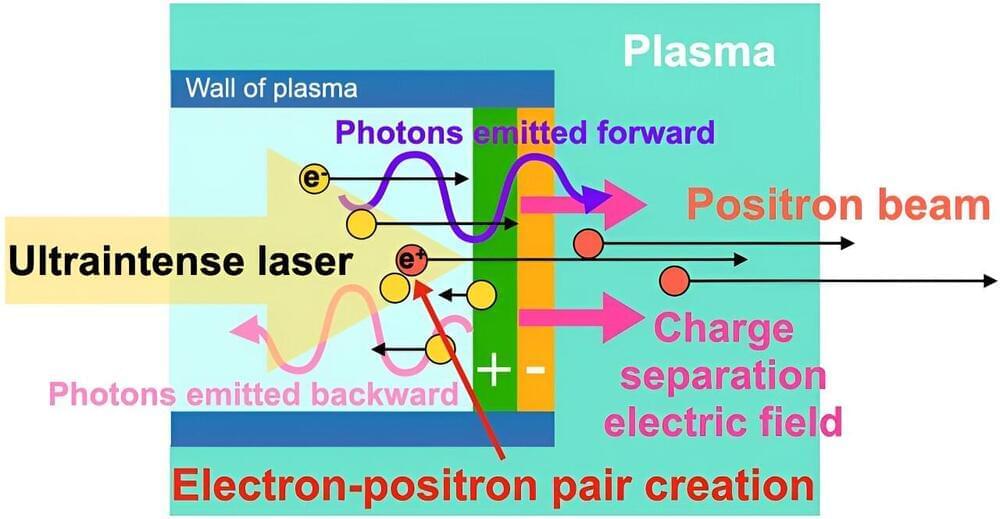Year 2023 face_with_colon_three
A team led by researchers at Osaka University and University of California, San Diego has conducted simulations of creating matter solely from collisions of light particles. Their method circumvents what would otherwise be the intensity limitations of modern lasers and can be readily implemented by using presently available technology. This work might help experimentally test long-standing theories such as the Standard Model of particle physics, and possibly the need to revise them.
One of the most striking predictions of quantum physics is that matter can be generated solely from light (i.e., photons), and in fact, the astronomical bodies known as pulsars achieve this feat. Directly generating matter in this manner has not been achieved in a laboratory, but it would enable further testing of the theories of basic quantum physics and the fundamental composition of the universe.
In a study published in Physical Review Letters, a team led by researchers at Osaka University has simulated conditions that enable photon –photon collisions, solely by using lasers. The simplicity of the setup and ease of implementation at presently available laser intensities make it a promising candidate for near-future experimental implementation.
